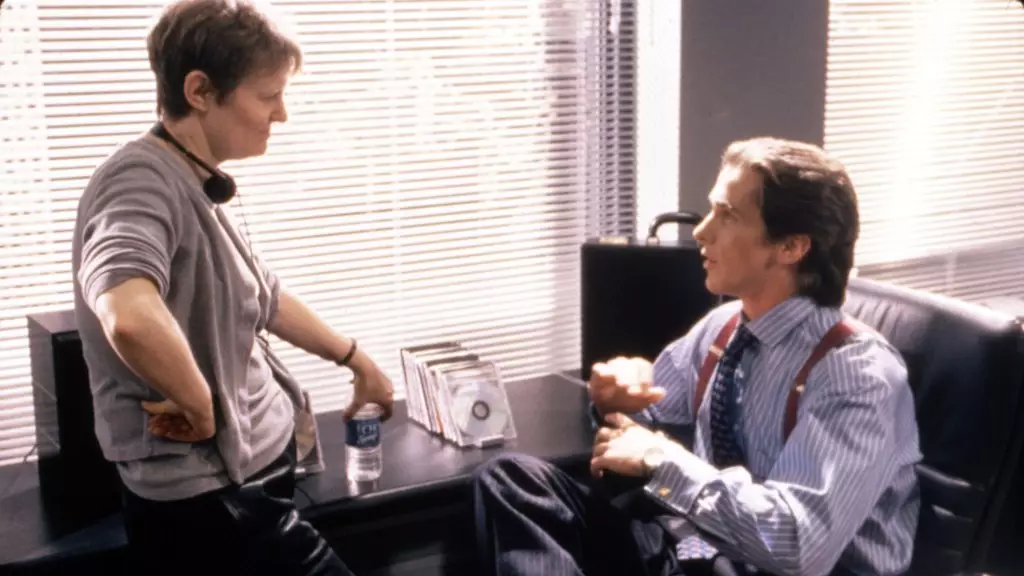As the film *American Psycho* celebrates its 25th anniversary, its relevance and cultural impact remain hotly debated topics, particularly in light of recent political and social transformations in the United States. Director Mary Harron’s recent insights offer an illuminating lens through which to examine how the film’s original satire has been reshaped over the years. What was once considered a critique of privilege and toxic masculinity now resonates with a new audience that includes young women who identify with its underlying themes. Yet, troublingly, parts of the film’s criticism have been misinterpreted or co-opted, presenting new challenges for its legacy.
Harron’s reflections expose the alarming reality of societal regression since the film’s release. “The rich are much richer, the poor are poorer,” she states, underscoring the widening gap between social classes that has paralleled the film’s exploration of consumerism and exploitation. In the current political climate, where extremist ideologies seem to flourish, *American Psycho* serves as both a dark prophecy and an unsettling mirror to the state of American society. Interestingly, references made to Donald Trump within the narrative now feel eerily prophetic, reinforcing Harron’s assertions that the issues the film highlights are only more pronounced today.
Misinterpretation and Misappropriation
Despite the film’s satirical objective, it is disheartening to witness segments of the audience, notably a faction of the “Wall Street bro” archetype, embracing *American Psycho* without understanding its critical lens. Harron expresses her bewilderment at how the film has been misconstrued. The way that Christian Bale portrays the grotesque, hyper-masculine character of Patrick Bateman is, to Harron and screenwriter Guinevere Turner, an obvious exaggeration meant to mock the very ideologies it exposes. Their perspective highlights a critical aspect often overlooked: the film is a gay man’s satire aimed at the absurdity of toxic masculinity.
Such misinterpretation exemplifies a broader issue in contemporary society where messages of critique are often overshadowed by surface-level interpretations. In a world marred by the disturbing acceptance of racism, sexism, and privilege, the unsettling behaviors displayed by Bateman should serve as a warning about the dangers of unbridled capitalism and moral vacuity—not a model for admiration.
The Shifting Appeal of a Dark Narrative
Harron acknowledges the surprising evolution of the film’s audience, noting an increased affinity among younger women. This development represents a significant shift from the initial reception of *American Psycho*, which was marred by controversy and criticism long before it even hit theaters. With growing conversations around feminist viewpoints, many young women now connect with the film’s critique of hypermasculinity and exploitative behaviors endemic in various cultures, from Wall Street to social media platforms.
That women are now embracing *American Psycho* signals a re-engagement with the idea that satire can fight against patriarchal structures. By recognizing the film’s inherent critique while enjoying its dark humor, a new generation seems to unmask the absurdity behind the alpha male archetype and find empowerment in the chaos. This dissonance of interpretation highlights a necessary discourse about how art can evolve and gain fresh meanings through changing societal lenses.
The Future of Satire in Film
Looking ahead, with a new adaptation of *American Psycho* on the horizon, the challenge will be to maintain the original film’s critical essence. This evolution must navigate the turbulence of modern social issues while still delivering a punchy critique of the status quo. Under the direction of Luca Guadagnino, there is hope that the upcoming reboot will honor Harron’s original intentions while also recontextualizing the narrative for today’s audiences.
Ultimately, *American Psycho* serves as a testament to the shifting tides of societal values and the power of satirical commentary in film. The dialogue initiated by Harron revolves around the unending capacity for narratives to provoke thought and instigate change, questioning whether current perceptions of masculinity and privilege can ever truly undergo transformation. The legacy of *American Psycho*—if anchored in its critical essence—can continue to spark important conversations in an era where its themes resonate as profoundly as ever.

